Special Reports
Naoki Hyakuta Writes: To All Who Label Me a Discrimination Raconteur
Published
7 years agoon
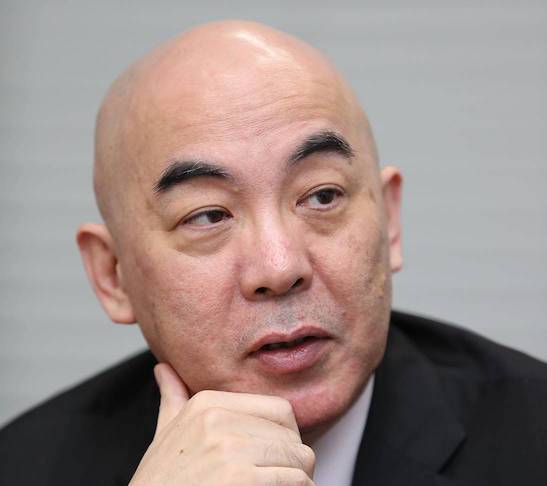
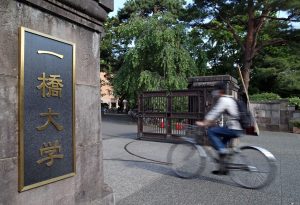
The entrance gate of Hitotsubashi University
In early June, author Naoki Hyakuta, 61, was scheduled to speak at Hitotsubashi University during the two-day “Kodaira Festival.” University officials, however, cancelled his lecture, citing the lobby of some students and other lecturers who, they said, considered Hyakuta’s remarks had been “discriminatory toward certain ethnic groups.”
Mr. Hyakuta addresses the students who called him a racist, and the officials who gave in to the pressure these students exerted.
The cancellation of my speech at Hitotsubashi University continues to cause wide repercussions.
A group at Hitotsubashi University called ARIC (Anti-Racism Information Center) was the main driving force behind the movement to oppose my speech. For two months, it was ARIC that persistently demanded that the executive committee cancel my speech on the grounds that “a racist like Naoki Hyakuta should never be given the chance to deliver a lecture.”
I have never once made a racist remark, and have never once engaged in any kind of hate speech. Nevertheless, ARIC arbitrarily interpreted some of my Twitter statements in order to label me a racist and an inciter of discrimination.
I should add here that the theme of my Hitotsubashi talk was to be an examination of the current state of the mass media. It had nothing to do with racism or hate speech in any way. All the same, ARIC asserted that my speech, by its very nature, would be inciting discrimination.
ARIC created this premise of “inciting discrimination” out of thin air, imposed all sorts of rules (of ARIC’s own creation) on the festival’s executive committee, and then told the committee that I would not be allowed to speak unless those arbitrary rules were upheld.
ARIC’s rules were absurd. Of those many unreasonable rules, I was most surprised by the following request:
“In regards to Naoki Hyakuta’s speech titled ‘The State of the Mass Media in Today’s Society,’ we ask that special measures to prevent discrimination be thoroughly undertaken. These measures are to include that Naoki Hyakuta pledge absolutely never to engage in discrimination, that he retract at the beginning of his speech all previous incitements to discrimination, and that he publicly announce, as a quasi-official person, that he will never engage in discrimination and that he will comply with the spirit of the International Convention on the Elimination of All Forms of Racial Discrimination. Likewise, if Hyakuta does not fulfill these conditions, then please either postpone his speech indefinitely or else cancel it altogether.”
What really floored me was when ARIC, premising their demands on the completely baseless assertion that “Naoki Hyakuta is an inciter of discrimination,” insisted that I retract at the beginning of my speech something I had never said or done, and then pledge never to do or say again in the future what I had never done or said in the past.
I was dumbfounded.
The executive committee rejected these demands, but ARIC stubbornly persisted in requesting, time and time again, that the executive committee cancel my speech. ARIC also began working on the members of the Hitotsubashi University faculty (who had already begun their own signature-gathering campaign to oppose my talk).
2-300x196.jpg)
The Tricks of Professional Activists
In its negotiations with the executive committee, ARIC came within a hair’s breadth of using words which could be construed as threats. For example, ARIC said, “A man in a separate organization from ours has said that he might get violent during the speech. What will you do if there are any casualties as a result of this?”
This is not a direct threat, but it is an extortionist adumbration of violence. It is redolent of the lines from yakuza movies, wherein the boss says, “I myself won’t do anything, but there are several hotblooded youngsters among us…”
Additionally, a female student from a foreign country said: “I may kill myself from the shock I receive after hearing Naoki Hyakuta’s speech. If that happens, what will the executive committee do to take responsibility?”
These are nothing other than the remarks of a bad-faith complainant. And all of these things are just the tricks of the professional activists—tricks to which I have long since grown accustomed.
The executive committee, which was the target of these tricks, comprised mainly of freshmen and sophomores. When 19- and 20-year-olds undergo this kind of bad pressure for nearly two months on end, they are almost certain to fold. The truth is that most of the students were exhausted. From what I heard, there were students who had nervous breakdowns, and female students who were reduced to tears. On a committee such as this, one student after the next spoke up to say that the speech should be cancelled.
Even despite these troubles, there were members of the committee who did not want to buckle under undue pressure. To that end, and so the speech could be carried out, these committee members apparently requested help from a security company as preparation against untoward eventualities.
However, the scale of the security presence was becoming too large as a necessity of dealing with the stubborn pressure kept up by the opposition faction, and this was in turn having an influence on other planned events. (This was the written reason provided by the executive committee as justification for cancelling my speech.)
During the night of June 2, nearly all members of the executive committee (with the exception of one, I am told) decided to cancel my talk.
These are the facts.
Hate Speech? How?
What, exactly, is the group known as ARIC? Their true nature is not clear. The group’s representative is a 35-year-old third-generation Korean resident in Japan who is also a graduate student at Hitotsubashi University.
ARIC’s main activity is to scour publications, newspapers, internet sites, and so forth for “discriminatory utterances,” and then to input all of those into a database. As of June of 2017, I and more than 120 other authors, public intellectuals, politicians, and other figures have had more than 2,700 utterances flagged as discriminatory and input into this database.
Some of the utterances were made by people who are already dead. However, the fact is that almost all of these utterances have absolutely nothing to do with discrimination at all. My own flagged utterances come to 19 in total. Among those, the following remarks have been input into the database as “hate speech”:
“Sadly, it is too late to undo the postwar brainwashing undergone by those brainwashed into accepting a masochistic view of history. It is almost impossible… (Shedding tears). What I can do is to protect from this brainwashing those young people who have not yet undergone it.” (From my Twitter page)
“I am astonished that anybody could say with a straight face that praising the kamikaze pilots is somehow equivalent to agreeing with the war. What is wrong with praising men who, faced with inevitable death, gladly went to meet it while thinking of their families, their ancestors, and those who saw them off? Am I to ridicule them as idiots in order to deny war? Who could do such a thing?” (Also from my Twitter page)
Where in these remarks is the hate speech? Where is the racism? The charges are meaningless. The utterances of the other accused parties are the same as these. Incidentally, Prime Minister Shinzo Abe has been flagged 31 times for hate speech.
ARIC’s database is available online. Those who are interested are invited to have a look. Every single listing will leave one wondering what in the world could have gotten it identified as hate speech. What, in the end, is ARIC’s aim? I have yet to figure it out.
However, as is clear from this recent speech cancellation campaign, ARIC is an activist group operating under the decorative banners of “anti-discrimination” and “anti-hate speech.” And yet, they offer only vague definitions of these terms. As anyone who reads my above-listed remarks will understand, ARIC’s definitions of hate speech and discrimination are entirely arbitrary.
What is terrifying is that ARIC has no qualms about shutting down speech by people whom it has branded as “discriminatory.” As Voltaire once said, “I may disagree with what you say, but I will defend with my life your right to say it.” ARIC’s actions evince none of the spirit of this famous phrase. I think that neither ARIC nor anyone who agrees with them has any right going forward to talk about “freedom of expression” or “freedom of debate.”
I was shocked to find that some saw no problem in the fact that my speech at Hitotsubashi University was cancelled. One example of such a reaction comes from journalist Koichi Yasuda. Recently, Yasuda has become quite intimate with an anti-racism activist group (formerly, “Racist wo Shibaki-tai”). Yasuda is known for his many remarks made in his capacity as an activist.
In an interview with the Tokyo Shimbun newspaper, Yasuda, speaking of my view that “the two Okinawa newspapers should be run out of business,” said, “It is patently ridiculous that people like that should [complain of] oppression of speech.”
What is at work here is a very clever transposition of reasoning. My remark about the newspapers was made at a study session held for young Diet members from the Liberal Democratic Party. The remarks were intended solely for this private audience. The remarks were not made publicly, and were not intended for an unspecified large number of people to hear.
I have often written ill of the two Okinawan newspapers in the past, and I was lamenting all of this as part of a small joke. In point of fact, I said nothing—nothing at all—about what should be done to the newspapers in Okinawa. It goes without saying, but it is entirely outside of my power to shut down the Okinawan newspapers.
However, ARIC actually did flex its power in order to shut down my speech. It is “patently ridiculous” to list these two things side by side as though they are equivalents.
1-300x193.jpg)
Shutting Down Others’ Views
Manga artist Yoshinori Kobayashi has written on his blog something to the effect that oppression of speech refers to the use of governmental authority directed against the private sector, so this does not rise to the level of oppression of speech.
This, too, is an untenable view. Oppression of speech is in no way limited to what is done by the government. When private-sector individuals or groups deploy inappropriate pressure to shut down others’ expression of views, it can be said that this is clearly oppression of speech.
I wrote this out of a sense of justice, but it may seem as though I am playing the victim. In that case, please forgive me.
Third-party observers may see this incident as much ado about nothing. A single author had his speech cancelled at a university festival. In one sense, this is not something over which to become unduly exercised.
However, this incident conceals a great deal of danger. This will become a precedent, and ARIC and groups like it will use it to shut down the speech of others which the groups do not like. The danger is that this kind of behavior will become normalized.
I am hardly exaggerating in saying this. If most in the media ignore this incident, then such things will eventually become regular happenings. Before one realizes it, we will no longer be free to speak as we please. When that day comes, we will look back and think, “Ahh, so this all began in June of 2017 at Hitotsubashi University.”
But by then, it will be too late.
(Click here to read the original article in Japanese)
You may like
-


EDITORIAL | Acquittal of Park Yuha, Comfort Women Author, a Win for Free Speech
-


BOOK REVIEW | The Comfort Women Hoax: A Fake Memoir, North Korean Spies, and Hit Squads in the Academic Swamp
-


Lew Seok-choon Secures Crucial Victory for Academic Freedom
-


EDITORIAL | Protest the Hong Kong Attempt to Infringe on Free Speech in Japan
-


Hong Kong and the Challenge to Supporting Academic Freedom
-


Park Yuha Acquitted, Wins a Crucial Victory for Academic Freedom



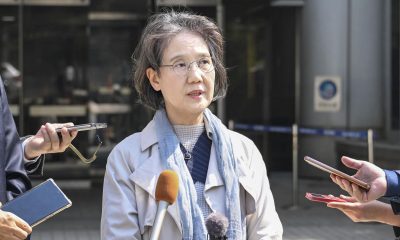



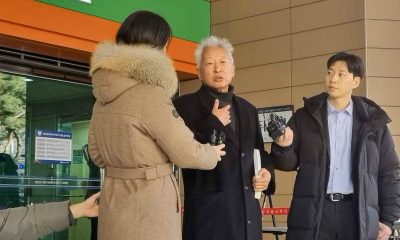








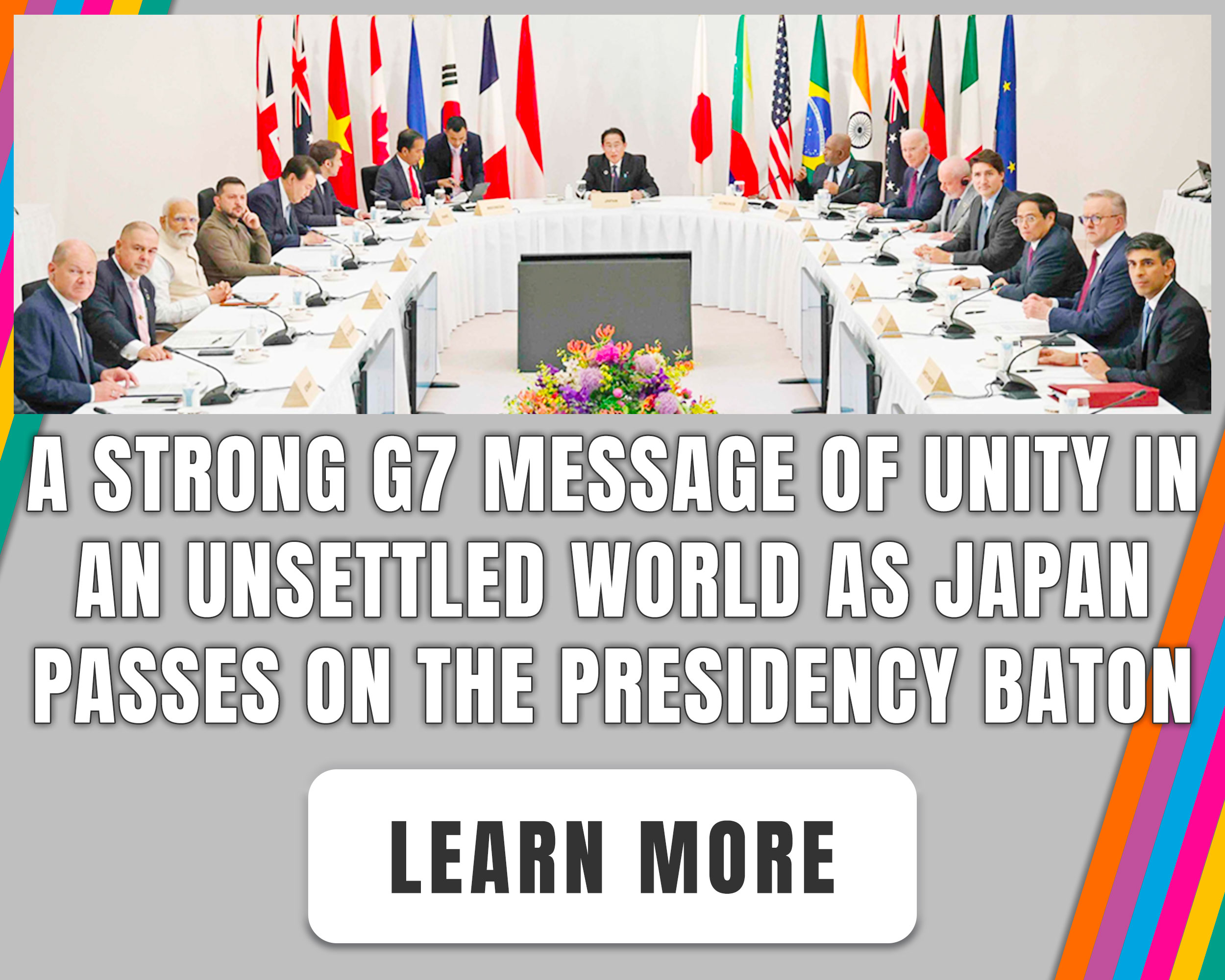
You must be logged in to post a comment Login